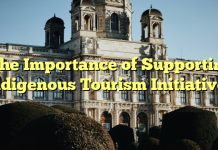Understanding Slow Tourism
What is Slow Tourism?
Slow tourism is a mindful approach to travel that emphasizes connecting deeply with the places we visit. Rather than rushing through a checklist of tourist spots, slow tourism invites travelers to immerse themselves in local culture, savor experiences, and reduce their environmental footprint. It's about making meaningful memories rather than simply ticking off destinations.
The Origins of the Slow Movement
The slow movement began with slow food in the late 1980s in Italy, as a response to the fast-food culture that was rapidly spreading across the globe. The aim was to preserve regional cuisines, encourage sustainable farming techniques, and promote local food traditions. This philosophy of taking time to appreciate life's pleasures naturally extended to other areas, including travel.
Core Principles of Slow Tourism
Fundamental to slow tourism is the principle of ‘less is more.’ By focusing on fewer destinations or experiences, travelers can gain a deeper understanding of the places they visit. Key elements include choosing sustainable transportation options, supporting local businesses, staying in eco-friendly accommodations, and fostering interactions with locals. This way of traveling encourages a shift from consumerism to experiences that enrich personal growth and cultural understanding.
The Benefits of Slow Tourism
Environmental Benefits
Slow tourism significantly lessens our ecological impact. Travelers often choose less polluting forms of transportation such as trains, bicycles, or walking. By staying longer in one location, they contribute less to the carbon emissions associated with air travel. Sustainable accommodations and supporting local businesses help preserve natural resources and protect biodiversity.
Reducing Carbon Footprints
Air travel is a considerable contributor to global greenhouse gas emissions. By opting for alternative transportation modes, like trains or buses, travelers can greatly reduce their carbon footprint. Slow tourism emphasizes longer, more meaningful stays, which naturally leads to fewer travel days and less frequent flights.
Embracing Eco-Friendly Accommodations
Sustainable accommodation practices, such as solar power usage, water conservation techniques, and eco-friendly waste management, are gaining popularity among slow travelers. Choosing these accommodations helps reduce environmental impact and supports businesses committed to sustainability.
Economic Benefits
By focusing on local experiences, slow tourism contributes significantly to the local economy. Travelers spend more on local goods and services rather than international chain hotels or tour operators. This economic influx supports local businesses, artisans, and farmers, ensuring that travel dollars benefit local communities.
Supporting Local Economies
Slow tourism often involves buying local produce, dining at local restaurants, and engaging in community-led tours. This supports the local economy directly and helps maintain cultural traditions, creating jobs and fostering a sense of pride among residents.
Preservation of Local Traditions
When travelers engage in traditional crafts, visit local markets, or participate in local festivities, they aid in the preservation of cultural heritage. These activities can also help raise global awareness about the importance of maintaining cultural diversity, which can further stimulate interest and investments in preserving these traditions.
Cultural Benefits
Slow tourism provides ample opportunity for cultural exchange. By spending more time in a destination, travelers can interact with locals, learn about their way of life, customs, and traditions. This exchange benefits both visitors and residents, fostering mutual respect and understanding.
Learning and Connection
Participating in cultural events, workshops, and local gatherings offers travelers the chance to learn new skills, languages, and traditions. These experiences not only enrich the traveler's perspective but also create genuine connections and friendships across cultural boundaries.
Cultural Sustainability
This form of tourism highlights the vitality of cultural sustainability. By prioritizing experiences that celebrate local culture and history, slow tourists play a role in sustaining cultural diversity and contributing to the social fabric of the communities they visit.
Personal Benefits
On a personal level, slow tourism encourages relaxation and mental rejuvenation. With the pressure of hurried schedules removed, travelers can fully engage with their surroundings, potentially leading to more enriching and transformative travel experiences.
Fostering Mindfulness
In the hustle and bustle of modern life, slow tourism offers a unique opportunity to embrace mindfulness. By being present and conscious in the travel experience, tourists return home not only with souvenirs but with insights and memories that resonate deeply.
Lifestyle Change and Reflection
Slow tourism often inspires travelers to reevaluate their daily lives and consumption habits. Experiencing other ways of living can lead to lifestyle changes that emphasize sustainability, simplicity, and satisfaction, fostering overall well-being.
Practices and Strategies for Slow Tourism
Planning Your Trip
Proper planning can enhance the slow tourism experience. Selecting destinations with rich cultural or natural significance, researching eco-friendly accommodations, and identifying slower modes of transport are fundamental steps.
Choosing Destinations
Focus on destinations that prioritize environmental sustainability and cultural preservation. Destinations that have measures to combat overtourism and promote community-led tourism initiatives often offer more authentic experiences.
Sustainable Transportation
Consider the environmental impact of your transportation choices. Opt for trains, buses, or bicycles when possible, and look into car-sharing or other communal options when traveling longer distances. These choices not only minimize environmental harm but also allow travelers to experience local life from a different perspective.
Engaging with Local Communities
Building connections with local communities provides cultural enrichment and supports the local economy. Participating in homestays, community projects, or volunteer programs can be mutually beneficial.
Community-Based Tourism
Participate in tourism enterprises managed by locals, ensuring a portion of your spending directly benefits the community. This can also foster a better understanding of local challenges and celebrate cultural achievements.
Volunteering and Skill Share
Contributing your time and skills can be a rewarding aspect of slow tourism. Engage in volunteering opportunities that focus on conservation, education, or cultural preservation. This respectful exchange can build strong cross-cultural relationships.
Choosing Eco-Friendly Accommodations
Selecting accommodations that support sustainability is crucial. Look for certifications or eco-labels indicating environmentally responsible practices, and inquire about the property's energy, water, and waste policies before booking.
Home Stays and Eco-Lodges
Choosing homestays or eco-lodges not only enhances cultural immersion but also supports establishments that prioritize environmental protection and local economic growth.
Minimal Impact Travel
Reduce your environmental impact while traveling by opting for low-energy activities, conserving resources, and adhering to local environmental guidelines. Encouraging ethical practices during your stay will train a longer-term habit of sustainability.
Challenges of Slow Tourism
Sustainable Infrastructure
In regions where sustainable infrastructure is still developing, it may sometimes be difficult to adhere strictly to slow tourism principles. Challenges include limited public transportation options and insufficient eco-friendly accommodations.
Overcoming Infrastructure Limitations
Research local transportation options, and be open to alternative arrangements. Developing a flexible mindset and leveraging local insights can often mitigate these limitations.
Contributing to Infrastructure Improvement
Support initiatives that work toward improving sustainable tourism infrastructure. Your advocacy and feedback can contribute to developing better resources for future visitors.
Integration into Mainstream Tourism
As slow tourism practices grow in popularity, ensuring they are adopted authentically and not just as marketing ploys is a real concern. Promoting genuine sustainable practices over ‘greenwashing' efforts is vital.
Detecting Authentic Practices
Examine a business or organization's credentials, certifications, and reviews. Avoid operations that make vague claims without substance or verified impact on sustainability.
Consumer Education and Advocacy
Raising awareness about the importance of genuine sustainable practices encourages more businesses to commit to true environmental stewardship, rather than superficial gestures.
The Future of Slow Tourism
Technological Innovations
Technology offers innovative solutions that can enhance the slow tourism experience. From green travel apps to sustainable transport options, technology supports informed, eco-friendly choices while traveling.
Green Apps and Platforms
Use apps and online platforms designed to help travelers make sustainable choices, from finding eco-conscious accommodations to discovering community-driven experiences.
Sustainable Transportation Advances
As electric and hybrid transportation becomes more widely available, travelers may find it easier to reduce their carbon footprints. The development of efficient public transportation systems will also support slow tourism growth.
Cultural Exchange and Understanding
Promoting slow tourism contributes to greater cultural exchange and understanding across borders. As more travelers become ambassadors of this approach, global awareness of the importance of cultural and environmental conservation will grow.
Cultivating Global Citizens
As slow tourism advocates cultural immersion and understanding, it fosters a global citizenry that values sustainability, empathy, and intercultural communication. This movement creates advocates for change who can influence tourism norms worldwide.
Building International Networks
Slow tourists often develop networks of like-minded individuals aimed at promoting sustainable travel practices. These connections foster collaboration and encourage shared experiences among diverse groups of people.
The rise of slow tourism marks an important shift towards sustainable and meaningful travel. By adopting slow tourism practices, travelers not only enhance their own experiences but also contribute positively to the communities and environments they engage with. Through thoughtful choices and mindful engagement, slow tourism proves that less can indeed be more, offering a path toward a more sustainable future for global travel.






























